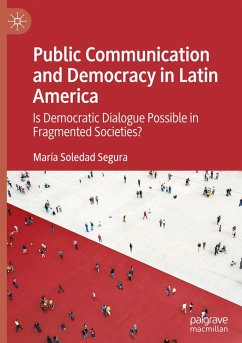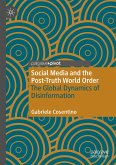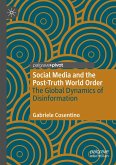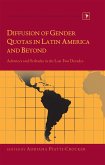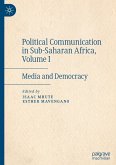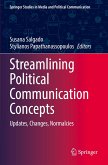The book examines alternatives proposed and implemented by governments, civil society organizations, social movements and companies in Latin America to democratize public communication and overcome its current problems, such as the dissemination of alternative facts and fake news, anti-scientific discourse, harassing, discriminatory and hate speech, anti-human rights and anti-democracy discourses, and the contempt for political correctness. Drawing on theoretical approaches from media and communication, political studies and sociology, the book identifies strengths and weaknesses of the strategies for promoting democratic dialogue in Latin America and globally.
Bitte wählen Sie Ihr Anliegen aus.
Rechnungen
Retourenschein anfordern
Bestellstatus
Storno

